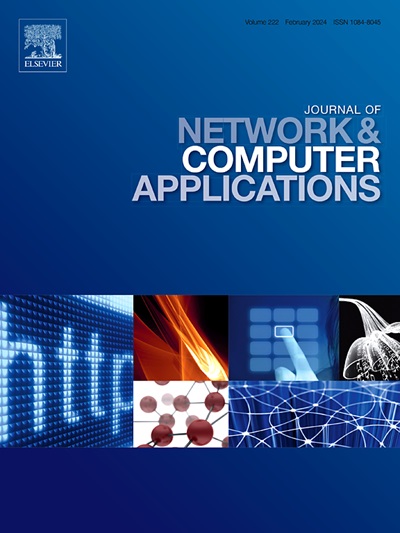Anonyma: Anonymous invitation-only registration in malicious adversarial model
IF 8
2区 计算机科学
Q1 COMPUTER SCIENCE, HARDWARE & ARCHITECTURE
引用次数: 0
Abstract
In invitation-based systems, a new user can register only after obtaining a threshold number of invitations from existing members. The newcomer submits these invitations to the system administrator, who verifies their legitimacy. In doing so, the administrator inevitably learns who invited whom. This inviter–invitee relationship is itself privacy-sensitive information, since knowledge of it can enable inference attacks in which an invitee’s profile (e.g., political views or location) is deduced from the profiles of their inviters. To address this problem, we propose , an anonymous invitation-based system in which even a corrupted administrator, colluding with a subset of members, cannot determine inviter–invitee relationships. We formally define the notions of inviter anonymity and invitation unforgeability, and provide formal proofs that achieves both against a malicious and adaptive adversary. Our design ensures constant cost for authenticating new registrations, unlike existing approaches where invitation generation and verification incur overhead linear in the total number of members. Moreover, scales efficiently: once a user joins, the administrator can immediately issue credentials enabling the newcomer to act as an inviter without re-keying existing members. We also design , a cross-network extension that supports anonymous third-party authentication, allowing invitations issued in one system to be used for registration in another.
匿名:恶意对抗模式下的匿名邀请注册
在基于邀请的系统中,新用户只有在从现有成员那里获得一定数量的邀请后才能注册。新人将这些邀请提交给系统管理员,由系统管理员验证其合法性。这样,管理员就不可避免地知道是谁邀请了谁。这种邀请者与被邀请者的关系本身就是隐私敏感信息,因为了解它可以使推断攻击成为可能,在这种攻击中,被邀请者的个人资料(例如,政治观点或位置)可以从邀请者的个人资料中推断出来。为了解决这个问题,我们提出了匿名,这是一个基于匿名邀请的系统,在这个系统中,即使是一个腐败的管理员,与一部分成员勾结,也无法确定邀请者与被邀请者的关系。我们正式定义了邀请者匿名性和邀请不可伪造性的概念,并提供了匿名性在对抗恶意对手和自适应对手时实现的正式证明。我们的设计确保了认证新注册的恒定成本,不像现有的方法,邀请生成和验证会导致成员总数的线性开销。此外,anonymous还可以有效地扩展:一旦用户加入,管理员可以立即颁发凭据,使新用户能够充当邀请者,而无需为现有成员重新设置密钥。我们还设计了AnonymaX,这是一个支持匿名第三方认证的跨网络扩展,允许在一个系统中发出的邀请用于在另一个系统中注册。
本文章由计算机程序翻译,如有差异,请以英文原文为准。
求助全文
约1分钟内获得全文
求助全文
来源期刊

Journal of Network and Computer Applications
工程技术-计算机:跨学科应用
CiteScore
21.50
自引率
3.40%
发文量
142
审稿时长
37 days
期刊介绍:
The Journal of Network and Computer Applications welcomes research contributions, surveys, and notes in all areas relating to computer networks and applications thereof. Sample topics include new design techniques, interesting or novel applications, components or standards; computer networks with tools such as WWW; emerging standards for internet protocols; Wireless networks; Mobile Computing; emerging computing models such as cloud computing, grid computing; applications of networked systems for remote collaboration and telemedicine, etc. The journal is abstracted and indexed in Scopus, Engineering Index, Web of Science, Science Citation Index Expanded and INSPEC.
 求助内容:
求助内容: 应助结果提醒方式:
应助结果提醒方式:


